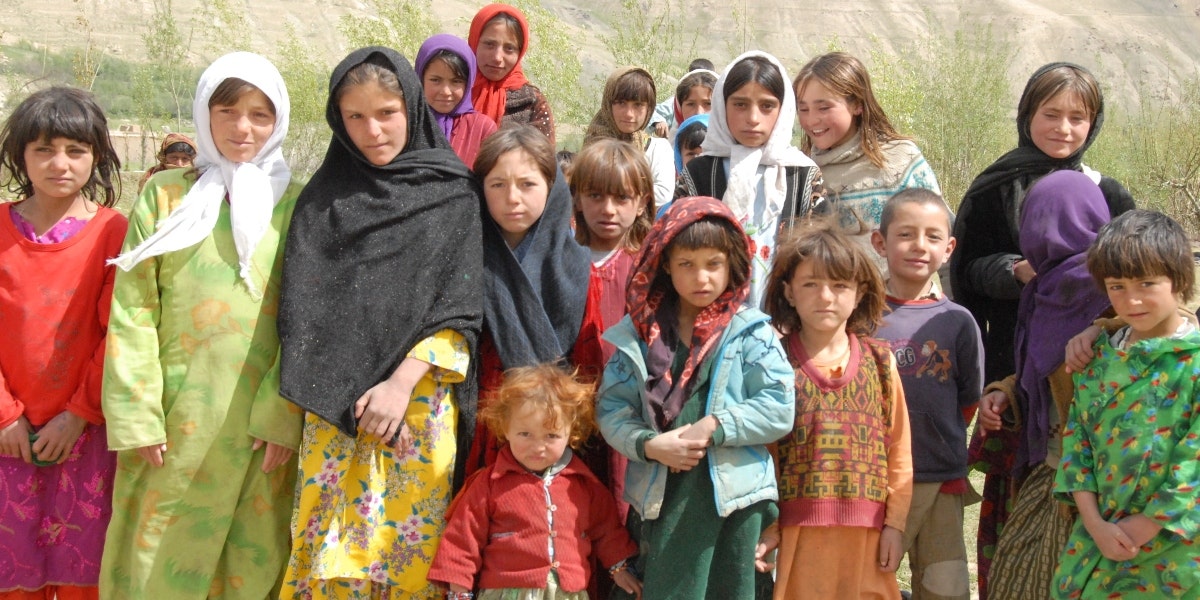Afghan Families Forced To 'Marry Off' Teen Daughters To Men Twice Their Age To Cope With Financial Burdens
How much is a human life worth?
 Maximum Exposure PR / Shutterstock
Maximum Exposure PR / Shutterstock The people of Afghanistan are suffering and women are paying the highest price as poverty and unemployment ravage the country.
Since the Taliban takeover in August, the living conditions of Afghan people have just kept getting worse as more and more people lose their jobs. Unable to afford necessities, people are forced to sell their daughters to survive.
Afghan women are being pushed into forced marriages due to poverty.
In a statement, UNICEF Executive Director Henrietta Fore mentions the increasing rate of families marrying their daughters off for money.
Many girls being sold off are between 6 months and 17 years old, however, there have been reports of families selling their daughters who are just 20-days-old.
RELATED: We Aren’t Ending 20 Years Of War
While this practice has been evident even before the takeover of the Taliban, it has become more common now, one of the reasons being the COVID-19 pandemic.
“The COVID-19 pandemic, the ongoing food crisis and the onset of winter have further exacerbated the situation for families. In 2020, almost half of Afghanistan’s population was so poor that they lacked necessities such as basic nutrition or clean water,” says Wazhma Frogh, an Afghan Women’s rights campaigner.
"The number of cases has increased so much because of starvation. People have nothing and cannot feed their children. It's completely illegal, and not allowed in religion."
Some forced marriages are illegal in Afghanistan.
It is illegal to marry off children who are under 15 years but people still do it out of desperation, especially in the rural areas of the country. Girls are married off young without having any say in it.
It poses a lot of risk for their health. Marrying early means giving birth early too and the number of complications arising from that are countless.
Jamila Afghani, an Afghan women’s rights activist says, “It ruins their lives — their psychological, physical, and sexual health. These girls are often treated as servants, as slaves.”
One man sold his daughters for $3000.
Fazal, an Afghan brick kiln worker, received a $1000 advance for 6 months of work but was asked to pay it back when construction work halted mid-way.
After being unable to pay it back due to his wife’s medical bills, he sold off his 13-and 15-year old daughters to men twice their age for $3000.
RELATED: Why Do People Care More About Dogs Stranded At Kabul Airport Than Actual Humans In Afghanistan?
His situation was dire and couldn’t find another way to feed his family. He was so desperate that he was considering selling off his youngest daughter.
"I had no other way to feed my family and pay off my debt. What else could I have done? I desperately hope I won't have to marry off my youngest daughter," says Fazal.
This isn't uncommon as many of Fazal's co-workers faced a similar problem and took the same step after being unable to hand back their advance pays.
Taliban sets restrictions on education for women.
UNICEF Executive Director Henrietta Fore says, “As most teenage girls are still not allowed to go back to school, the risk of child marriage is now even higher. Education is often the best protection against negative coping mechanisms such as child marriage and child labour.”
Lack of education has been one of the most common contributing factors to the issue of child marriage.
"The two most important risk factors for driving child marriage are poverty and the lack of access to education," says Heather Barr of Human Rights Watch.
The Taliban had banned female education in their previous power in 1996-2001. They have claimed that education for women would resume but didn’t state when or under what conditions.
However, currently, as the situation is unchanged, child marriages continue to happen and are predicted to continue and increase at this rate.
Sanika Nalgirkar, M.F.A. is a writer and an Editorial Intern at YourTango who writes on entertainment & news, lifestyle, and pop culture topics.

